Is There a Dietary Requirement for Inulin?
While there isn’t a requirement or recommended amount of inulin you should aim for every day, consuming it regularly can contribute to your daily fiber intake. People around the world are believed to consume inulin every single day in the form of natural plant foods and some packaged products. Archaeological evidence from the Chihuahuan Desert near New Mexico suggests that ancient populations living in this region who ate plant-based diets probably consumed about 135 grams of prebiotic inulin-type fructans every single day!
Today, it’s hard to estimate the average inulin intake among adults since it varies a lot from country to country, depending on what foods are present in the diet most. For American adults, the average intake of inulin is estimated to be approximately 10–15 grams per day, mostly coming from fruits, vegetables and packaged foods that contain added chicory root (like cereals, bars and cheeses, for example).
Health authorities stand behind inulin as an easy, low-cost way to help bridge the gap between daily fiber recommendations and what people are actually consuming. And because inulin can be added to common foods like oatmeal, smoothies, juices and baked goods without effecting their taste it’s very simple to use.
Are There Any Inulin Side Effects or Interactions?
Inulin is non-allergic and safe for most people to consume considering it’s completely natural and present in many foods. Studies have shown that chicory is rarely allergenic, and when foods containing inulin cause reactions, it’s usually due to other compounding ingredients like peanuts, milk, soy, shellfish and wheat.
That being said, some people don’t react very well to eating high amounts of certain types of fibers or carbohydrates. Inulin is considered a FODMAP, a class of carbohydrates that are rapidly fermented in the colon and can produce gas and digestive issues for some people.
Inulin Fiber Takeaways
- Inulin is a a soluble plant fiber that’s present in high amounts in the chicory plant, along with an estimated 36,000 other plants.
- Inulin takes up a lot room in the digestive tract once eaten, helping to make you feel fuller; absorbs water, which helps to form stool; clings to cholesterol to help prevent metabolic syndrome; and allows you to go to the bathroom more easily. It also reduces constipation, improves gut health by acting like a prebiotic, helps curb appetite, boosts heart health, lowers metabolic syndrome risk factors, can replace sugar and flour in recipes, and increases calcium absorption.
- Other benefits include better infant nutrition, growth and development; gastrointestinal health; colon cancer prevention; better blood sugar control; healthier cholesterol levels and improved lipid metabolism; improved bone mineralization; protection from fatty liver disease; protection from obesity; and better immunity.
- You can find inulin products in stores labeled a few different ways, including: inulin powder, also called insoluble inulin fiber, which can be added to recipes or liquids; inulin prebiotics, often added to probiotic supplements to boost their effects; and inulin added to many fiber formulas, bars, cereals, meal replacements, etc., which also might be labeled “chiory root.”
- The best food sources are ground chicory root, dandelion root, asparagus, leeks, onions, bananas, plantains, sprouted wheat, garlic, artichokes, fresh herbs, yams, burdock root, camas root, coneflower, jicama and yacon root.
| IMAHERB BIOTECH– WEIGHT LOST | |||
| Products | Specification | Appearance | Test Method |
| Garcinia Combogia Extract | HCA 50%/60% | Off-White Powder | HPLC |
| Konjac Extract | glucomannan 90%/95% | Light White Powder | UV |
| Green Coffee Extract | Total chlorogenic acid 50% | Brown Yellow Powder | UV |
| Senna Leaf Extract | Sennoside 3%-20% | Brown Black Powder | HPLC |
| Citrus Aurantium Extract | Oxedrine 5%-10%、98% | Brown Yellow Powder | HPLC |
| Hesperidin 50%-98% | |||
| Bitter Melon Extract | Charantin 10% | Brown Yellow Powder | HPLC/UV |
| White Kidney Bean Extract | Phaseolin 1% 2% | Off-White Powder | HPLC |
| Psyllium husk Powder | ≥98% | Light Brown Powder | Enzymatic-Gravimetric Method |
| Aloe Vera Extract | Aloin 20%-40% | Deep Brown Powder | HPLC/UV |
| Rhubarb Extract | Emodin 5% | Yellow Powder | HPLC |
| Chicory Root Extract | Inulin 90% | White Powder | HPLC |
| Jerusalem Artichoke Extract | |||
| Lotus Leaf Extract | Nuciferin 2% | Brown Yellow Powder | HPLC |
| L-carnitine | 99% | White Powder | HPLC |







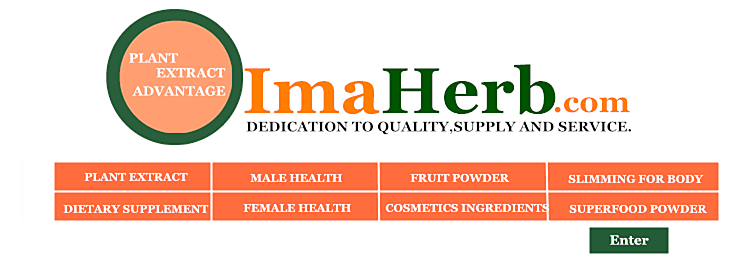
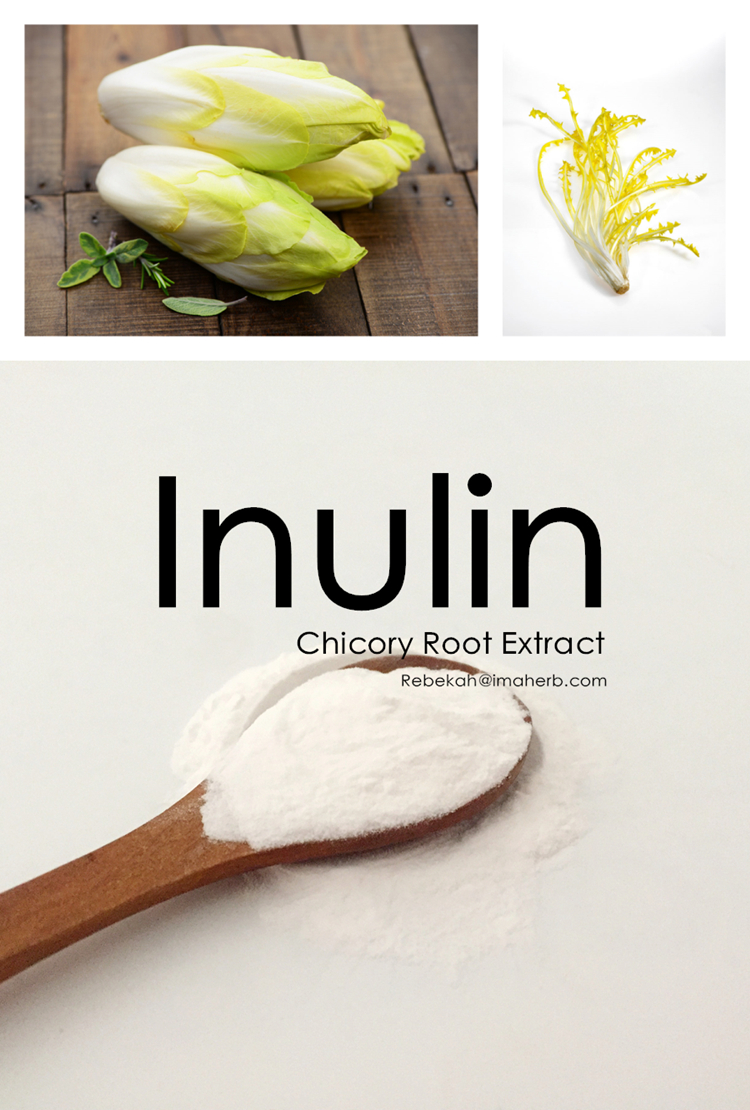

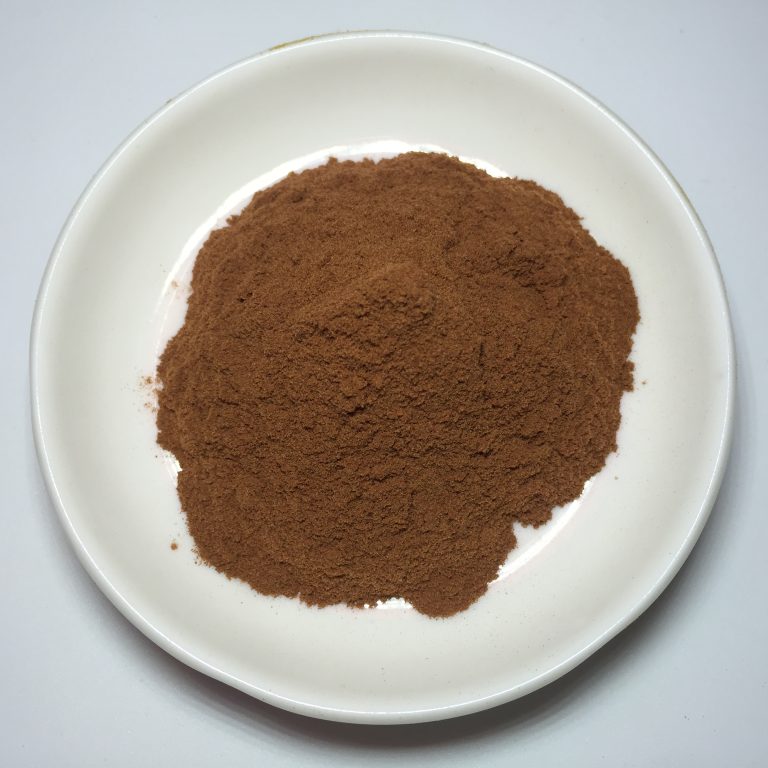 Imaherb China manufacturer supply Apple Extract Powder
Imaherb China manufacturer supply Apple Extract Powder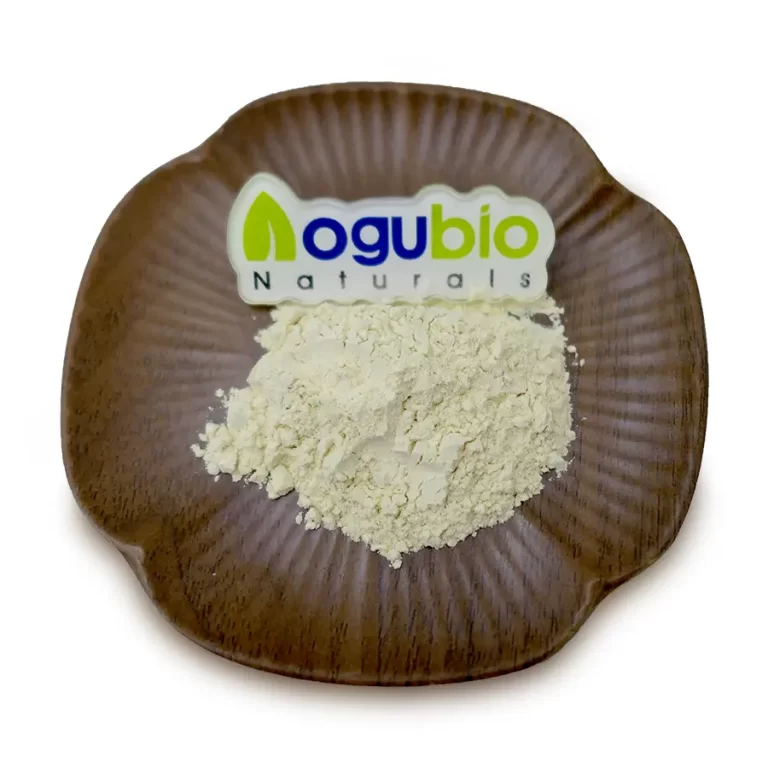 Imaherb China manufacturer supply Apigenin Powder 98%
Imaherb China manufacturer supply Apigenin Powder 98%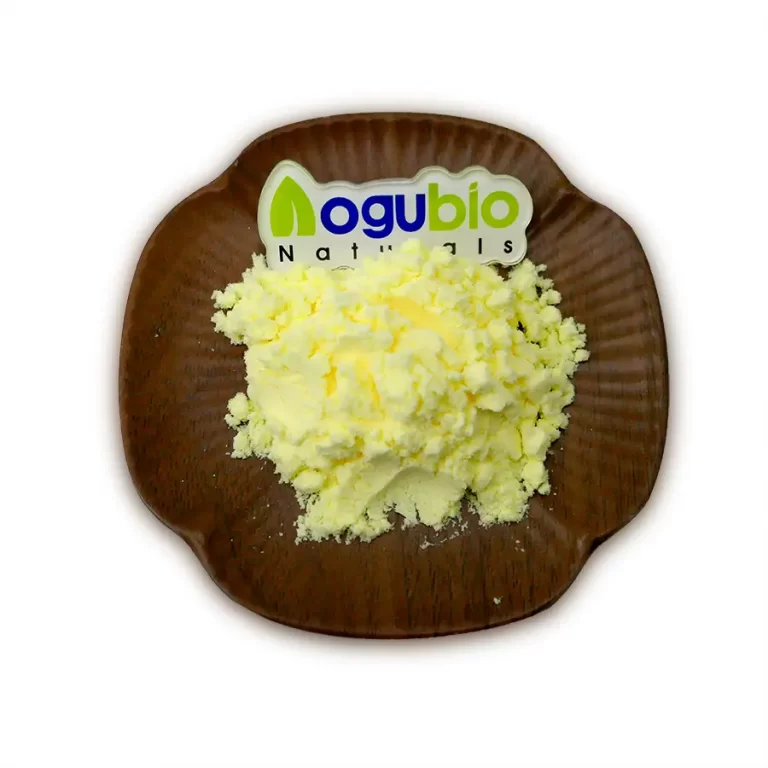 Imaherb Factory supply Alpha Lipoic Acid Powder CAS 1077-28-7
Imaherb Factory supply Alpha Lipoic Acid Powder CAS 1077-28-7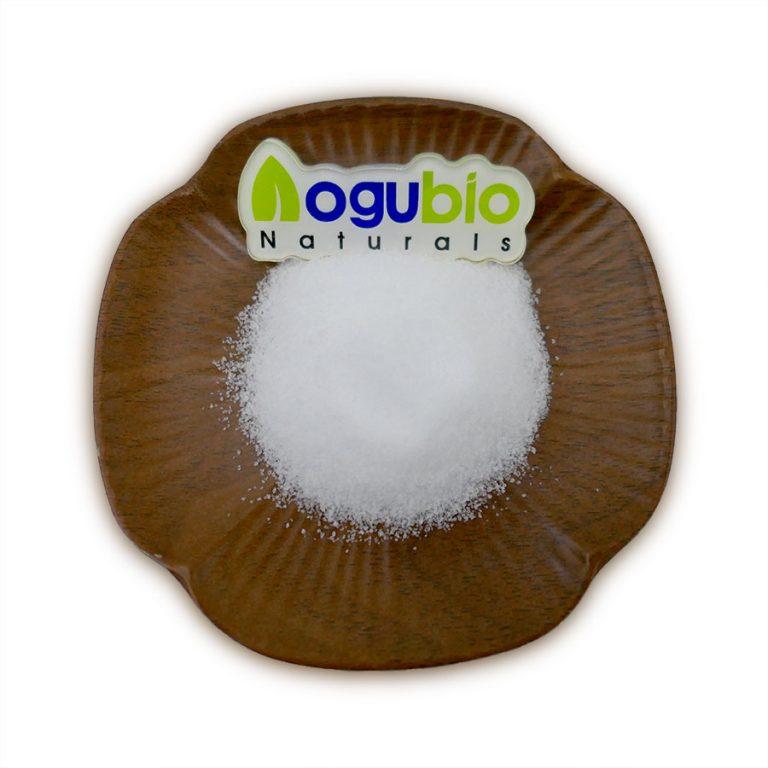 Imaherb Factory supply Alpha GPC Powder CAS 28319-77-9
Imaherb Factory supply Alpha GPC Powder CAS 28319-77-9 Imaherb Factory supply Alliin Powder 98% CAS 556-27-4
Imaherb Factory supply Alliin Powder 98% CAS 556-27-4 skype
skype Sales Manager
Sales Manager Rebekah
Rebekah Rachel
Rachel Miranda
Miranda Camilla
Camilla
 Sales Manager
Sales Manager